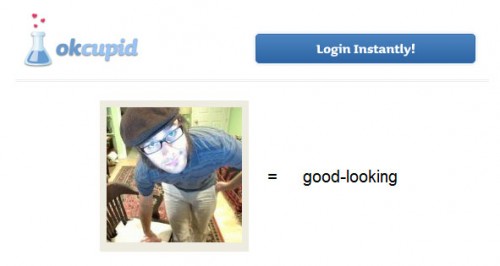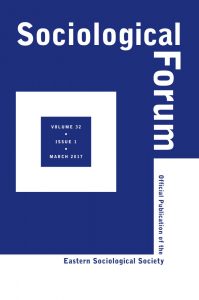OkCupid Grants Special Privileges to Attractive Users
 Before you ask: I did not make this picture up. It is a screenshot taken directly from my email. And, yeah, this is probably a bit of inexcusable narcissism.
Before you ask: I did not make this picture up. It is a screenshot taken directly from my email. And, yeah, this is probably a bit of inexcusable narcissism.
I, like millions of other Americans (OkCupid has 500,000 active users, eHarmony has had more than 20 million registered users in its history, and Match.com sees more than 20,000 users register each day), have turned to the enigmatic world of online dating. Being a less than affluent Ph.D. student, I naturally turned to the free option: OkCupid.
What has struck me most about online dating is the penchant these sites have for quantifying everything. The latest, and perhaps, creepiest, instance of quantification is OkCupid’s announcement that is has developed an algorithm to determine other users’ subjective experience of your attractiveness. The following is an excerpt from the email I received:
We are very pleased to report that you are in the top half of OkCupid’s most attractive users. The scales recently tipped in your favor, and we thought you’d like to know.
How can we say this with confidence? We’ve tracked click-thrus on your photo and analyzed other people’s reactions to you in QuickMatch and Quiver.
Of course, the harnessing of prosumer labor to produce new sorts of quantified information that is of value to a company shouldn’t be too surprising. Attempting to develop an algorithm to determine attractiveness is really only a furtherance of a business model that has already proved lucrative for the company.
What is more problematic on a sociological and ethical level is that OkCupid has decided to grant special privileges to its attractive users. More from that email:
Your new elite status comes with one important privilege:
You will now see more attractive people in your match results.This new status won’t affect your actual match percentages, which are still based purely on your answers and desired match’s answers. But the people we recommend will be more attractive. Also! You’ll be shown to more attractive people in their match results.
The attractiveness algorithm does not simply serve as a tool that allows users to stratify themselves; it automatically stratifies users based on attractiveness regardless of whether the users want to discriminate on this basis. Moreover, it makes the ecological fallacy of assuming that what is attractive to the masses is attractive to each individual.
As a result, OkCupid’s dating service has become bizarrely reminiscent of Plato’s Republic, where people were assigned in three castes based on fitness and intelligence and, then, the polity organized reproduction in an attempt to create the perfect ruling class. While, certainly, the Internet has provided tools that aid us in almost every facet of our lives, this case is an example of why we need to be cautious of the normalizing power of centralized network infrastructure and organization in accordance with mass opinion.
One last tidbit from the email to go out on:
Suddenly, the world is your oyster. Login now and reap the rewards. And, no, we didn’t just send this email to everyone on OkCupid. Go ask an ugly friend and see.
![]() “Looking for a Date? A Site Suggests You Check the Data” by Jenna Wortham
“Looking for a Date? A Site Suggests You Check the Data” by Jenna Wortham
![]() “Putting Your Best Face Forward: The Accuracy of Online Dating Photographs” by Jeffrey T. Hancock and Catalina L. Toma
“Putting Your Best Face Forward: The Accuracy of Online Dating Photographs” by Jeffrey T. Hancock and Catalina L. Toma




1099-0860/asset/NCB_logo.gif?v=1&s=40edfd0d901b2daf894ae7a3b2371eabd628edef)
pj: first, hilarious. second, i think your comment about “normalization” and the ecological fallacy is dead on. given this, would you care to comment on how this prosumer labor on OkCupid is tied to normalization while so many other aspects of prosumer self-hood seem to allow difference/niche/Long Tail? ~nathan
I think this is an indication that we need a more nuanced theoretical approach to studying the Internet. Maybe we need to look to the study fashion (e.g., Lipovetsky, Simmel, Bourdieu, etc.) to explain how something can both differentiate and normalize. This certainly requires more thought.
Also, the more problematic question is: Why am I still on OkCupid?
I actually discontinued my A-List subscription (I wasn’t overly fond of it as a dating site, but thought they deserved support for their research-oriented blog) due to this thing. I’m up in the air about deleting my profile altogether, but other recent changes to their overall layout and profile content dictating user experience (“I’m looking for”) makes for a really invasive, extroverted sort of experience that I’m not all that comfortable with.
I got this email too but am convinced that every member gets it. I think it’s a way to appeal to our narcissism to get us online more.